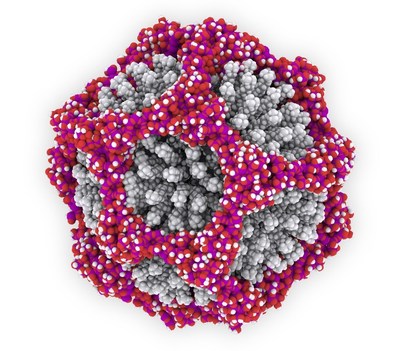Subject: SVY
Nature Study Leverages Artificial Intelligence to Reveal Never-before-seen Cage Structure of Ultra-small Particles
NEW YORK, June 20, 2018 /PRNewswire/ -- Elucida Oncology, a biotechnology company developing a first-in-class nanotechnology platform, announced that researchers from Cornell University, some of whom are currently working with the company, have published a study in Nature outlining the artificial intelligence-facilitated discovery of an ultra-small synthetic silica nanoparticle with cage structure ('silicage'). The research offers insights that could enhance the current success of C-Dots, a cancer-targeting particle platform for the detection, real-time visualization, and treatment of cancer, and gain a better understanding of particle formation mechanisms. The research represents the first time that single-particle 3D reconstruction using machine-learning algorithms is applied to inorganic synthetic materials. Results offer important insights that could lead to the development of a wide-range of materials solutions to medical problems but also to other application fields.

"This novel application of the latest advances in artificial intelligence has made this exciting discovery possible, opening the door for us to explore previously-unknown aspects of nanomaterials," said Kai Ma, PhD, vice president of materials R&D and manufacturing, Elucida Oncology, who was a post-doctoral researcher with Cornell University at the time of the study and is the first author of the paper. "While the C-Dot platform is breaking new ground in the diagnosis and treatment of cancer, learning from our fundamental research on the materials platform holds promise for even greater advances."
"This result builds on our extensive fundamental work on the early formation stages of C-Dots and has brought us into a realm where we've discovered structures we never expected to find that have broad scientific potential," said Ulrich Wiesner, Spencer T. Olin professor of engineering, materials science & engineering, Cornell University, and director, Elucida Oncology, who is the corresponding author of the paper. "Understanding the early particle formation stages enables better control over particle structure of materials such as C-Dots, advancing their capabilities in specific applications."
The newly-discovered structure is a 12-sided, highly-symmetrical dodecahedral silica cage that has the potential to contain, transport and deliver a wide range of sensitive molecules. Because of similarities in their structure, researchers are referring to this silicage as the "buckyball of silica."
Since silicage formation is based on a similar material synthesis platform as Elucida Oncology's C-Dots, combining the structure control obtained for these cages with the current C-Dot technology has potential for the development of entirely novel classes of drug-delivery nanomedicines for cancer theranostics. Since the paper describes similar cages for other materials like metals and transition metal oxides, results also encourage investigations into other applications including catalysis, and energy storage and conversion, among others.
Gaining a deeper understanding of the ultrasmall C-Dot platform, the original discovery by this team, was the impetus for the research. The C-Dot structure is uniquely designed to either accurately deliver diagnostic, imaging and therapeutic agents to cancer cells, or to safely clear the body through the kidneys. This is the only inorganic optically-active nanoparticle platform of its kind to obtain authorization from the FDA as an investigational new drug (IND) for clinical use. The platform is currently in Phase II human clinical trials for real-time image-guided intraoperative mapping of cancerous lymph nodes to aid in their precise surgical excision.
The discovery of the 'silicage' was enabled by the adaptation of advanced machine learning algorithms that were originally developed for the study of biological structures, including virus, protein, and DNA assemblies. Approximately 19,000 single-particle cryo electron microscopy (cryo-EM) images were sorted in a two-class reconstruction by the computer algorithm, one of which resulted in the 3D dodecagonal structure of the silicage. The reconstruction itself revealed details of the silica particle structure, which in turn provided insights into possible cage formation mechanisms. As a result of the electron beam sensitivity of silica at such small length scales, such details were not available from cryo-EM alone. In fact, due to their extremely small size, these cages had been overlooked for tens of years.
"When we published our first paper about the C-Dot platform in 2005, we were excited about the voyage to leveraging this very powerful platform for medicine, and now, we continue to be amazed at where the initial discovery is taking us," added Wiesner. "Who knows where these two discoveries will take us next."
About Elucida Oncology, Inc.®
Elucida Oncology, Inc. is a biotechnology company focused on clinical research, development and subsequent commercialization of its first-in-class ultra-small C-Dot cancer-targeting particle platform. The C-Dot platform is designed to either enable improved diagnostics, real-time image-guided surgery and precision delivery of a broad range of cancer therapeutics, or being safely cleared from the body through the kidneys. Research partnerships with the Michelle Bradbury Lab at Memorial Sloan Kettering Cancer Center and the Wiesner Group at Cornell University enable early and clinical research. The Elucida Oncology name and logo are registered trademarks of Elucida Oncology, Inc.
SOURCE Elucida Oncology, Inc.
These press releases may also interest you
|
News published on and distributed by:



